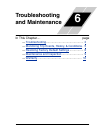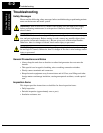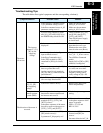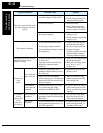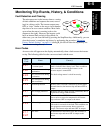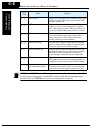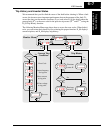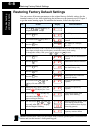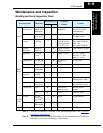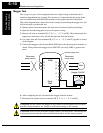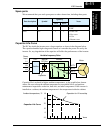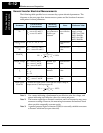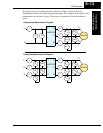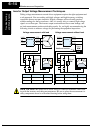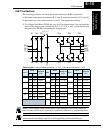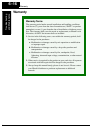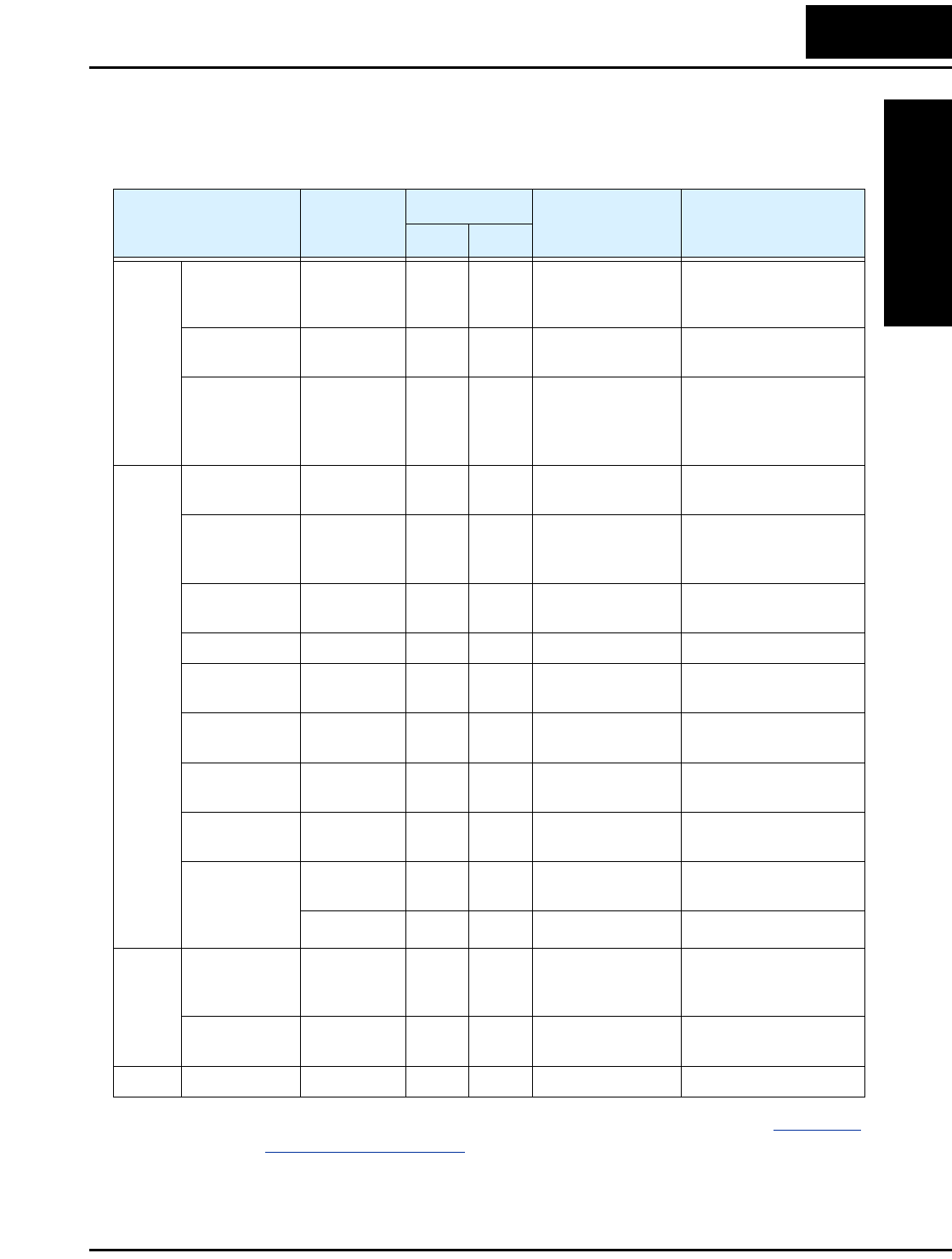
L100 Inverter
Troubleshooting
and Maintenance
6–9
Maintenance and Inspection
Monthly and Yearly Inspection Chart
Note 1: The life of a capacitor is affected by the ambient temperature. See “Capacitor
Life Curve” on page 6–11.
Note 2: The inverter must be cleaned periodically. If dust accumulates on the fan and
heat sink, it can cause overheating of the inverter.
Item Inspected Check for...
Inspection Cycle
Inspection
Method
Criteria
Month Yea r
Overall
Ambient
environment
Extreme
temperatures
& humidity
✔ Thermometer,
hygrometer
Ambient temperature
between -10 to 40°C,
non-condensing
Major devices Abnormal
noise & vib.
✔ Visual and aural Stable environment for
electronic controls
Power supply
voltage
Voltage
tolerance
✔ Digital volt meter,
measure between
inverter terminals
[L1], [L2], [L3]
200V class:
200 to 240V 50/60 Hz
400V class:
380 to 460V 50/60 Hz
Main
circuit
Ground
Insulation
Adequate
resistance
✔ Digital volt meter,
GND to terminals
5 Meg. Ohms or greater
Mounting No loose
screws
✔ Torque wrench M3: 0.5 – 0.6 Nm
M4: 0.98 – 1.3 Nm
M5: 1.5 – 2.0 Nm
Components Overheating ✔ Thermal trip
events
No trip events
Housing Dirt, dust ✔ Visual Vacuum dust and dirt
Terminal block Secure
connections
✔ Visual No abnormalities
Smoothing
capacitor
Leaking,
swelling
✔ Visual No abnormalities
Relay(s) Chattering ✔ Aural Single click when
switching ON or OFF
Resistors Cracks or
discoloring
✔ Visual Use Ohm meter to
check braking resistors
Cooling fan Noise ✔ Power down,
manually rotate
Rotation must be
smooth
Dust ✔ Visual Vacuum to clean
Control
circuit
Overall No odor,
discoloring,
corrosion
✔ Visual No abnormalities
Capacitor No leaks or
deformation
✔ Visual Undistorted appearance
Display LEDs Legibility ✔ Visual All LED segments work



